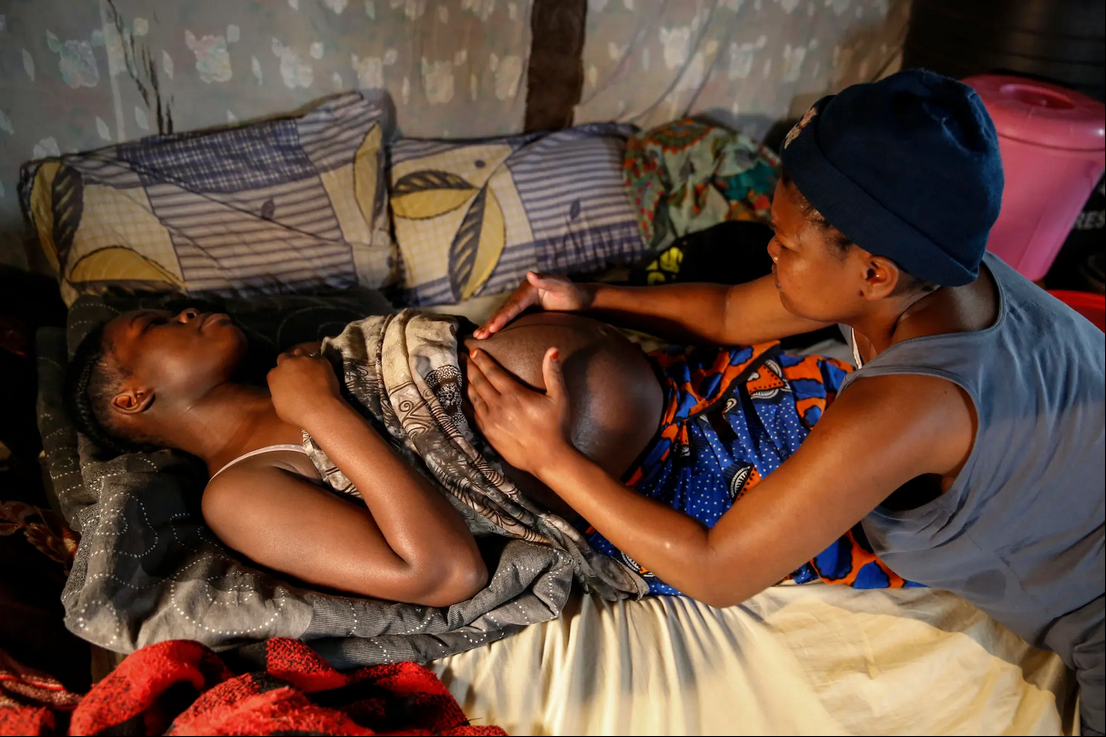International African Women’s Day on July 31 recognizes the contribution of African women toward political, social, and economic freedom on the continent. But gender equality is still not a reality for most African women.
Many countries still have regressive laws, and even the more progressive laws in other countries are often poorly carried out. There is a lack of supportive frameworks to promote and safeguard women and girls’ equality, such as research into rights violations and public education on gender equality and women and girls’ rights.
The Protocol to the African Charter on Human and Peoples’ Rights on the Rights of Women in Africa, or the Maputo Protocol as it is known, provides a framework for fulfilling and upholding the rights of women and girls.
It identifies various areas in which women and girls are denied equality and calls on governments to take legislative, institutional, and other measures to combat all forms of discrimination.
Forty-four out of 55 African countries have ratified the Maputo Protocol and some have made progress in enacting legislation in the two decades that it has been in force.
But the lack of adequate progress is a reminder that governments have not met their obligation to address meaningfully the ways that laws, policies, and practices propagate patriarchal systems that discriminate against women and girls and entrench gender inequality in every aspect of life.
Article 4 of the Maputo Protocol recognizes women’s and girls’ rights to life, integrity, and security of their person, some of the most fundamental, foundational rights. Yet violations of these rights are frequent and manifest in a number of ways including femicide – gender related killings of women and girls; what is called obstetric violence – ill treatment of women and girls when seeking reproductive health services; and lack of access to safe, legal abortion care.
In 2022, the United Nations identified Africa as the continent with the highest incidence of femicide. More than 20,000 women and girls on the continent were killed by intimate partners or family members that year, averaging more than 54 deaths daily – the highest in absolute numbers of any continent.
However, only the government of South Africa has consistently collected data on femicide or made any efforts to develop laws, policies, or programs that address femicide, such as in its National Strategic Plan on Gender Based Violence and Femicide. Other governments, such as Kenya, fail both to collect the relevant data and to effectively investigate and prosecute femicide.
African countries have also been slow to respond to mistreatment of women and girls during pregnancy, childbirth, and postpartum care, including verbal and physical abuse, neglect, and non-consensual and medically unnecessary procedures.
Insufficient data hampers conclusions on the exact scope of the problem but global studies have found that, depending on the country, between 15 and 91 percent of women experience mistreatment during childbirth. There is also a dearth, globally, of data on abuses that occur when women and girls seek other maternal health services, including abortion services.
In Malawi, a 2019 report from the Office of the Ombudsman documented various forms of abuse and mistreatment during labor and delivery, including forced Cesarean sections and hysterectomies.
The causes included negligence by overworked and underpaid healthcare workers and a lack of medication and emergency obstetric care. Five years later, Malawi is lagging in carrying out the report’s recommendations.
Article 14 of the Maputo Protocol recognizes women and girls’ right of access to abortion care in cases when the pregnancy is a result of sexual violence or when the pregnancy endangers the physical or mental health of the woman, or the life of the woman or the fetus. But fewer than half of the countries that have ratified the Maputo Protocol have incorporated this right into their domestic law, and even fewer have implemented it.
In the absence of legally protected abortion care, 75 percent of all abortions on the African continent are unsafe. This results in maternal mortality as well as complications that require over 1.6 million African women and girls to seek post-abortion care each year.
In Zambia, which is considered to have some of the most liberal abortion laws on the continent, unsafe abortion remains prevalent and accounts for 30 percent of the country’s maternal mortality.
The law limits the availability of facilities and healthcare providers who can legally provide abortion services, contrary to guidance from the World Health Organization.
In addition, the government has not taken sufficient measures to address stigma against abortion or raise awareness of the country’s laws on abortion, leading to many women, girls, and even healthcare providers believing incorrectly that abortion is illegal.
If Africa is to achieve the milestones under the UN 2030 Agenda for sustainable development or the Africa Union Agenda 2063, the continent’s strategic framework to achieve inclusive and sustainable socio-economic development over a 50-year period, countries urgently need to recommit themselves to carrying out the Maputo Protocol. That means including taking immediate action to address femicide, obstetric violence and inaccessibility of safe, legal abortion care.
Source:hrw.org


